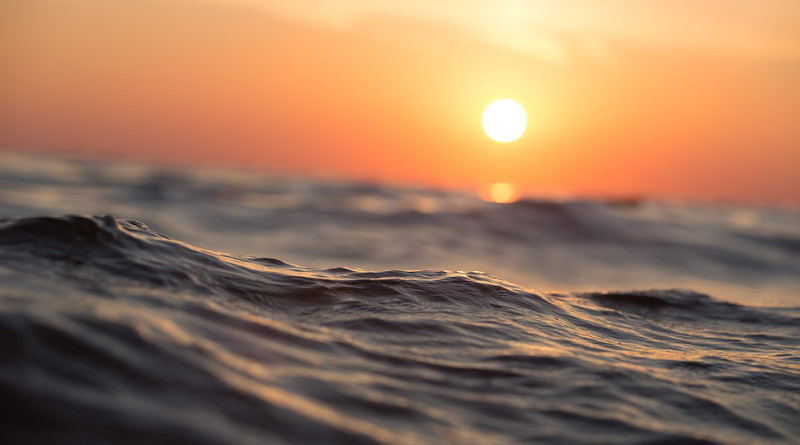Delving Into The Salty Secrets Of The Mediterranean
Have you ever wondered about the extraordinary origins of the Mediterranean Sea? Just like the legendary story of Noah and the great flood, the Messinian Salinity Crisis emerges as a captivating event. This long-lasting and controversial episode in Earth science played a pivotal role in the formation of the Mediterranean Salt Giant, ultimately shaping the Mediterranean Sea we marvel at today.
The COST Action Uncovering the Mediterranean Salt Giant (MEDSALT) conducted research into the mechanisms underlying the crisis, as well as the environmental and ecological consequences of the refilling of the Mediterranean Sea. The Action Chair, Dr Angelo Camerlenghi from National Institute of Oceanography and Applied Geophysics (OGS), embarks with us on a captivating journey through time unraveling the incredible story behind the creation of this magnificent sea.
The Messinian Salinity Crisis and the Mediterranean Salt Giant
The late Messinian (Miocene) salt layer in the Mediterranean basin is the largest and most recent salt giant on Earth. Its origin is linked to the Messinian Salinity Crisis, a controversial geological event dated to roughly 5.5 million years ago when a then-dry Mediterranean Sea refilled. Recent research has discovered that the previously hypothesized megaflood that ended the crisis was actually two separate floods, with the second one generating a dramatic cascade down the Malta Escarpment that led to the definitive filling of the Mediterranean. This new finding adds to our understanding of this complex event.
MEDSALT research reveals secrets of our planet’s past and future
MEDSALT research has made important contributions to our understanding of Earth’s history, shedding light on past and future climate change. Firstly, the Action has found evidence that dramatic, geologically driven events have occurred throughout Earth’s history, beyond the well-known mega volcanic eruptions. These events, caused by a combination of sea level changes and topographic evolution, provoked catastrophic events that shaped large areas of our planet. Secondly, the research has shed light on how ecosystems react to ecological crises over large areas. For instance, during the Messinian Salinity Crisis, marine fauna in the Mediterranean could not survive due to changed environmental conditions, and yet no extinctions have been observed, suggesting adaptation or survival in ecological niches.
Finally, MEDSALT Action research has contributed to the scientific literature on past climate changes, which is increasingly relevant for understanding future climate change. “While the Messinian Salinity Crisis was triggered by a period of low sea levels”, says Angelo, “we believe it was caused by Earth’s geological evolution rather than climate. In fact, the event may have impacted global climate by removing a significant amount of salt from the global ocean, affecting ocean circulation and sea ice formation in polar regions”.
The most important result of MEDSALT, according to Angelo, was the collaboration with PhD students and young researchers. An incubator for new ideas and research proposals was created, the EU Marie Curie Training Network, or SALTGIANT, sponsoring this research through fifteen PhD students. Together, they contributed outstanding research in symbiosis with the COST Action.
“Our challenge was to work together, putting aside our preconceived scientific disagreements, and try to obtain important new data, and so hopefully arrive at a shared interpretation. This approach has produced excellent results,” rejoiced Angelo. Many Action members benefitted from its networks, including several young researchers who found positions in academia.
Regarding his own role, “the COST Action and the research projects that derived from it have constituted the backbone of my research in the last decade of my career,” said Angelo. “They surely helped strengthen my position in the institute, providing me visibility at national and international levels. Similarly, the Action gave me significant opportunities in science outreach communication”.
MEDSALT Action legacy
The MEDSALT Action proposal was conceived as a joint initiative, coordinating various scientific goals from existing research efforts, including the European Consortium for Ocean Research Drilling (ECORD), the Japanese and US branches of the International Ocean Discovery Program (IODP), EU- FP7 ITN MEDGATE, TOPO-EUROPE, and other national and international research programmes focussing on the Mediterranean salt giant.
Following the conclusion of the Action, research has continued mainly through the SALTGIANT EU Marie Curie Training Network. MEDSALT and SALGIANT together have produced 107 research papers, as listed in Google Scholar. In addition, the work on the scientific drilling proposals has continued, as well as several smaller scale projects. A group of young researchers are now preparing a new COST Action proposal, inspired by the MEDSALT.
Finally, the Action findings resulted in four high quality scientific publications, and it is still supporting research work today (a legacy of MESALT).
In conclusion, the research conducted by the MEDSALT network has significant implications for several fields. Firstly, it contributes to our understanding of how the Earth’s climate and environment have changed over time and how change might unfold in the future. Secondly, studying the ecological consequences of the refilling of the Mediterranean Sea has helped in our understanding of how ecosystems respond to large-scale environmental changes. Finally, the Mediterranean Sea holds great economic and cultural value for many countries, and understanding its history and ecology is crucial for effective management and conservation of this important region.
“The COST Action and the research projects that derived from it have constituted the backbone of my research in the last decade of my career. They surely helped strengthening my position in the institute and gave me visibility at national and international level. Similarly, the Action gave me big opportunities in science outreach communication.” Dr Angelo Camerlenghi, Chair of MEDSALT

